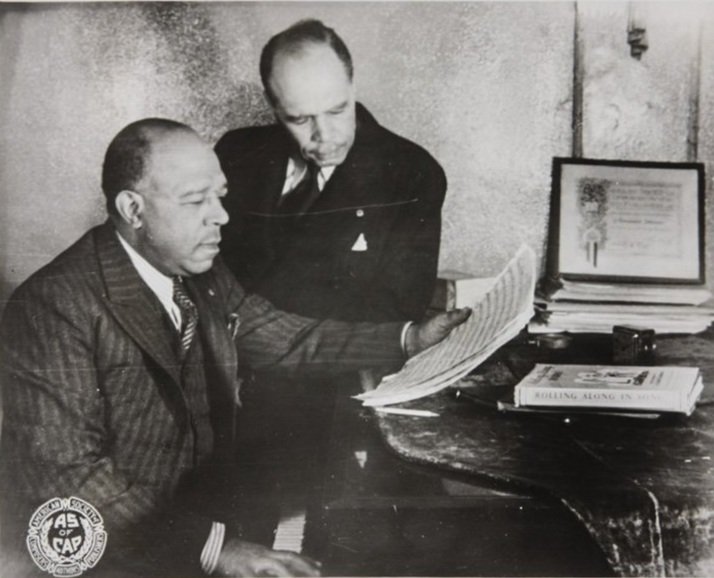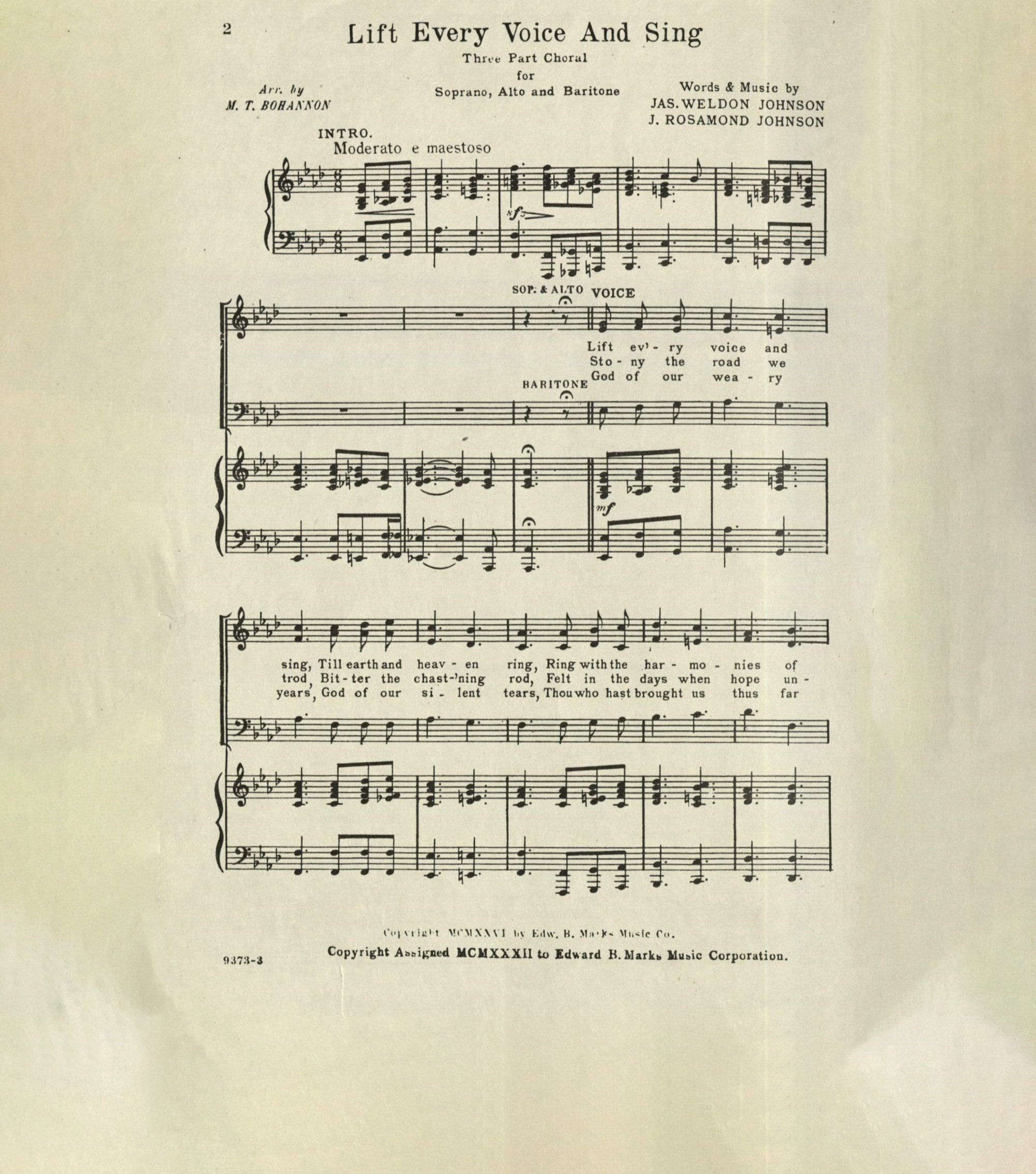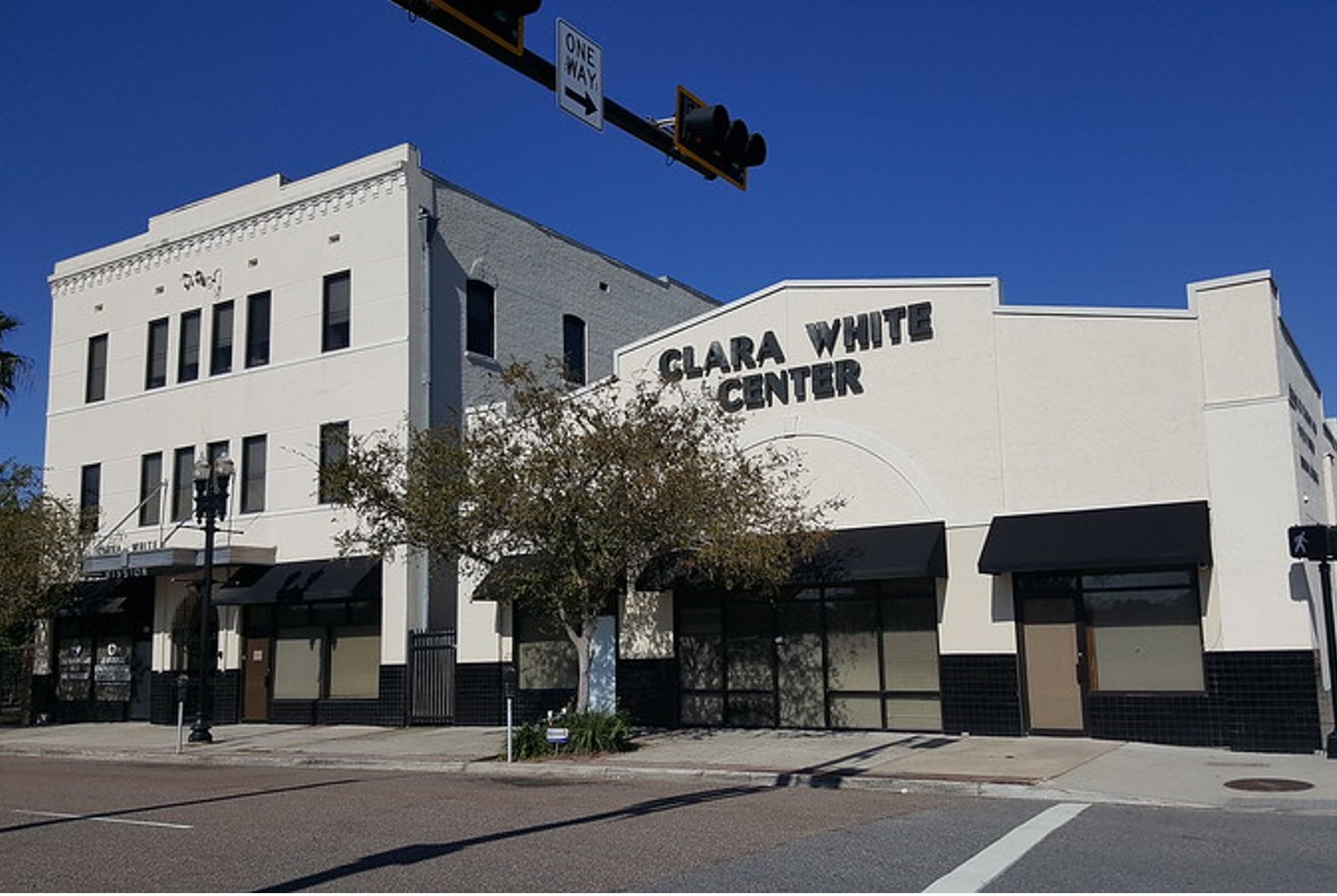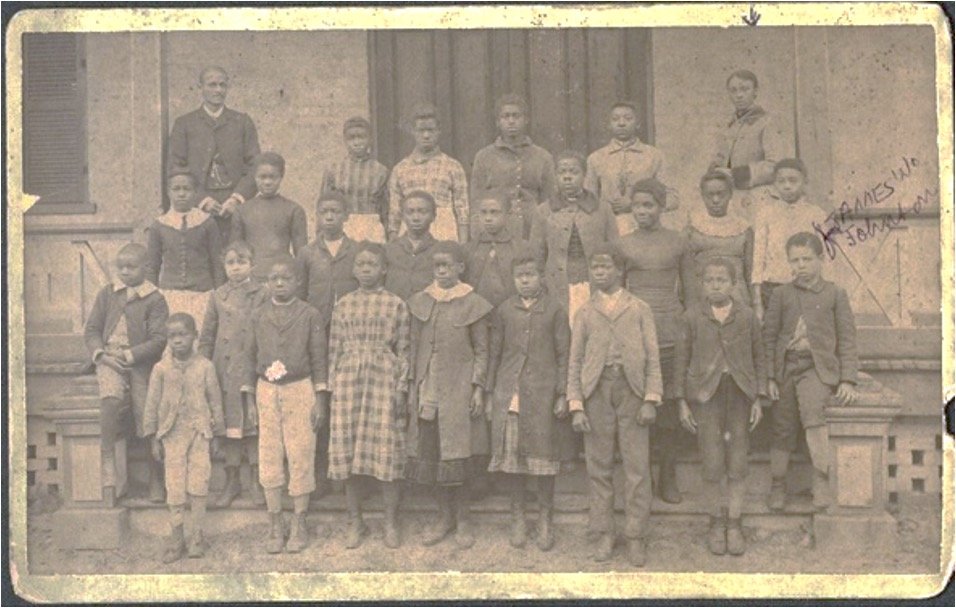
Lift Ev’ry Voice and Sing has grown from a hymn first sung by Jacksonville schoolchildren to the internationally recognized “Black National Anthem”

History of the Hymn
James Weldon Johnson wrote "Lift Ev'ry Voice and Sing" as a poem in 1900. His brother, J. Rosamond, set the poem to music. It is a hymn that acknowledges the country's dark past, but looks forward with themes of thanksgiving, faithfulness, and freedom.
The hymn was first performed on February 12, 1900 by five hundred Black students at LaVilla's Stanton Institute in Jacksonville to celebrate President Abraham Lincoln's birthday. In 1919 the National Association for the Advancement of Colored People (NAACP) adopted the song as the "Negro National Anthem."
The song continues to have a significant impact in the United States. It has been used during protests and demonstrations and the song is performed during Florida's May 20th Emancipation Day celebrations and on Juneteenth. Notable singers who have performed the song include Kim Weston, Melba Moore, René Marie, Denyce Graves, Aretha Franklin, Ray Charles, Stevie Wonder, Vanessa Williams, Alicia Keys, and Beyoncé.




James Weldon Johnson
James Weldon Johnson was an internationally famous songwriter, author, poet, diplomat and civil rights activist. He was born on June 17, 1871 and later attended Stanton Institute in LaVilla before graduating from college. He returned to Jacksonville to become principal of Stanton. During that time, he taught himself law and in 1898, he became the first African American person in Florida to pass the state bar exam to become a licensed attorney.
When James and J. Rosamond moved to New York after the Great Fire of 1901, James became involved in politics and was appointed by President Theodore Roosevelt as a diplomat to Venezuela and Nicaragua. Upon his return to the U.S., he worked with the NAACP on anti-lynching laws and fought for the rights of African Americans. He served as secretary of the NAACP for 10 years.
James later became the first Black professor at New York University and taught creative writing at Fisk University. He was married to Grace Nail Johnson for 18 years. He died in an automobile accident in Maine in 1938 and is buried in New York.





J. Rosamond Johnson
John Rosamond Johnson, who preferred to be recognized as J. Rosamond Johnson, was an internationally recognized music composer, educator and actor. He was born on August 11, 1873 and he grew up to attend Stanton Institute and the New England Conservatory. He returned to Jacksonville after college to offer private music lessons, serve as choirmaster and organist for Bethel Institutional Baptist Church in Hansontown, and teach music at the Florida Baptist Academy in the Eastside neighborhood.
When the brothers moved to New York City after the Great Fire of 1901, J. Rosamond wrote music for and performed as an actor on Broadway at a time when it was rare for African Americans to be featured. He sang the part of Frazier, a lawyer, in the original production of George Gershwin’s American opera Porgy and Bess.
J. Rosamond spent time in London as the musical director of Oscar Hammerstein’s Grand Opera House. He also served as director of the Music School Settlement for Colored People in Harlem. He was married to Nora Floyd for more than 40 years and they had two children, Mildred and Donald. He died in his sleep in 1954 and is buried in New York.





History of LaVilla
LaVilla was one of the first urbanized Gullah Geechee communities to emerge in the early 18th century as enslaved people fled bondage. It eventually became the place that anyone who was not white and Protestant lived and worked; the Jewish, Cuban, Syrian, Chinese, and other immigrants who alongside the African-Americans called LaVilla home turned it into the Harlem of the South.
LaVilla was a hotbed of creativity, commerce and life. It boasted thriving theaters, family homes, taverns and flophouses. At its cultural peak, live music reverberated through the streets, filling the neighborhood with the sounds of jazz and blues. Greats including Dizzy Gillespie, Louis Armstrong and Billie Holiday got their starts in LaVilla. Ray Charles, fresh from the St. Augustine School for the Blind, hustled for gigs in LaVilla. The smell of fresh bread emanating from the Jewish New York Star Bakery signaled arrival to the neighborhood for the many visitors pouring from the nearby train station.
The vision for Lift Ev’ry Voice and Sing park comes after years of planning, input meetings, and discussions with community stakeholders about how to best revitalize LaVilla, a once bustling and vibrant neighborhood alive with arts, culture, and entrepreneurship. Special places served LaVilla’s past and are imperative to help build a vibrant future for the neighborhood, its residents and visitors






Photos and captions courtesy of The Jaxson Magazine




